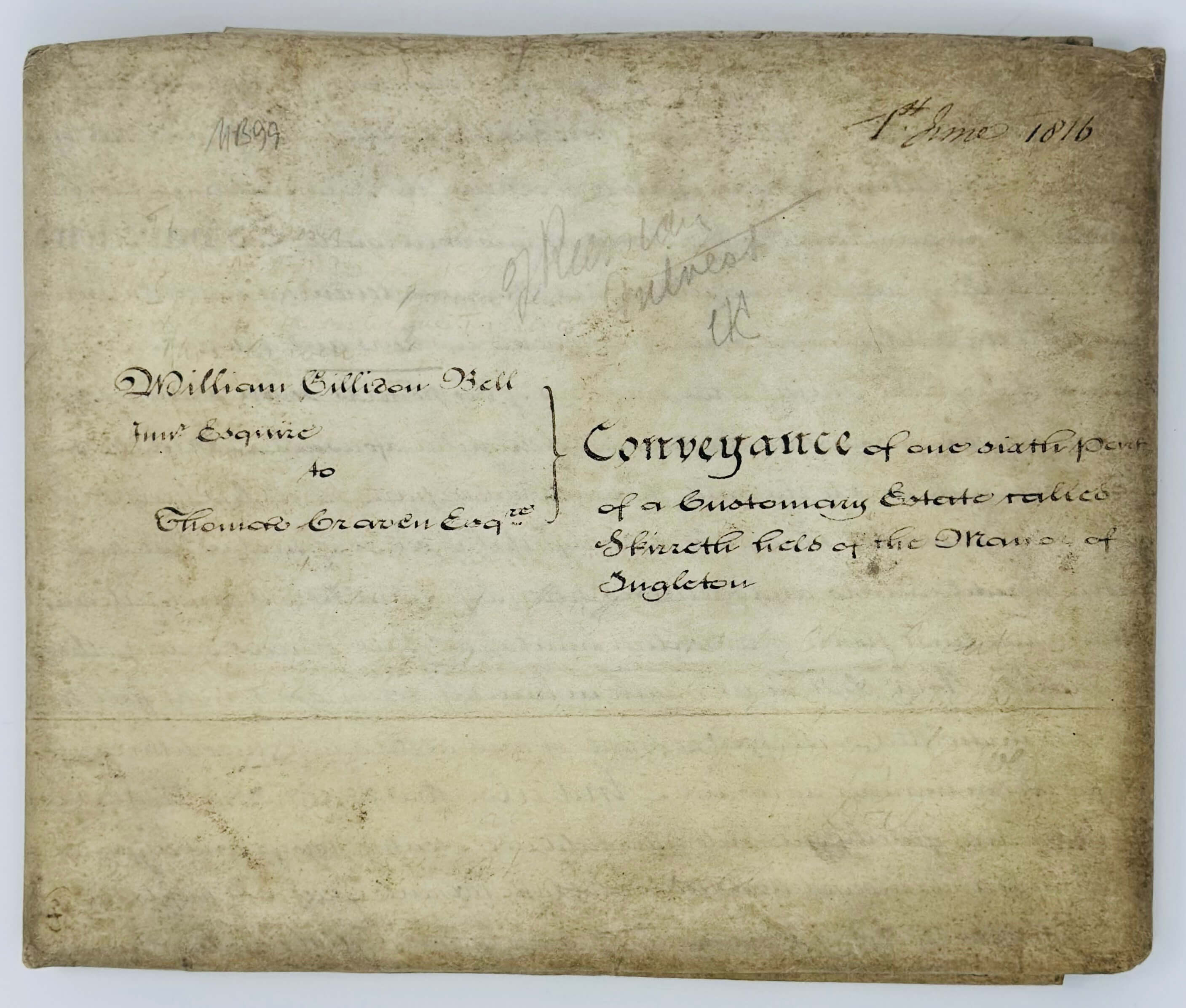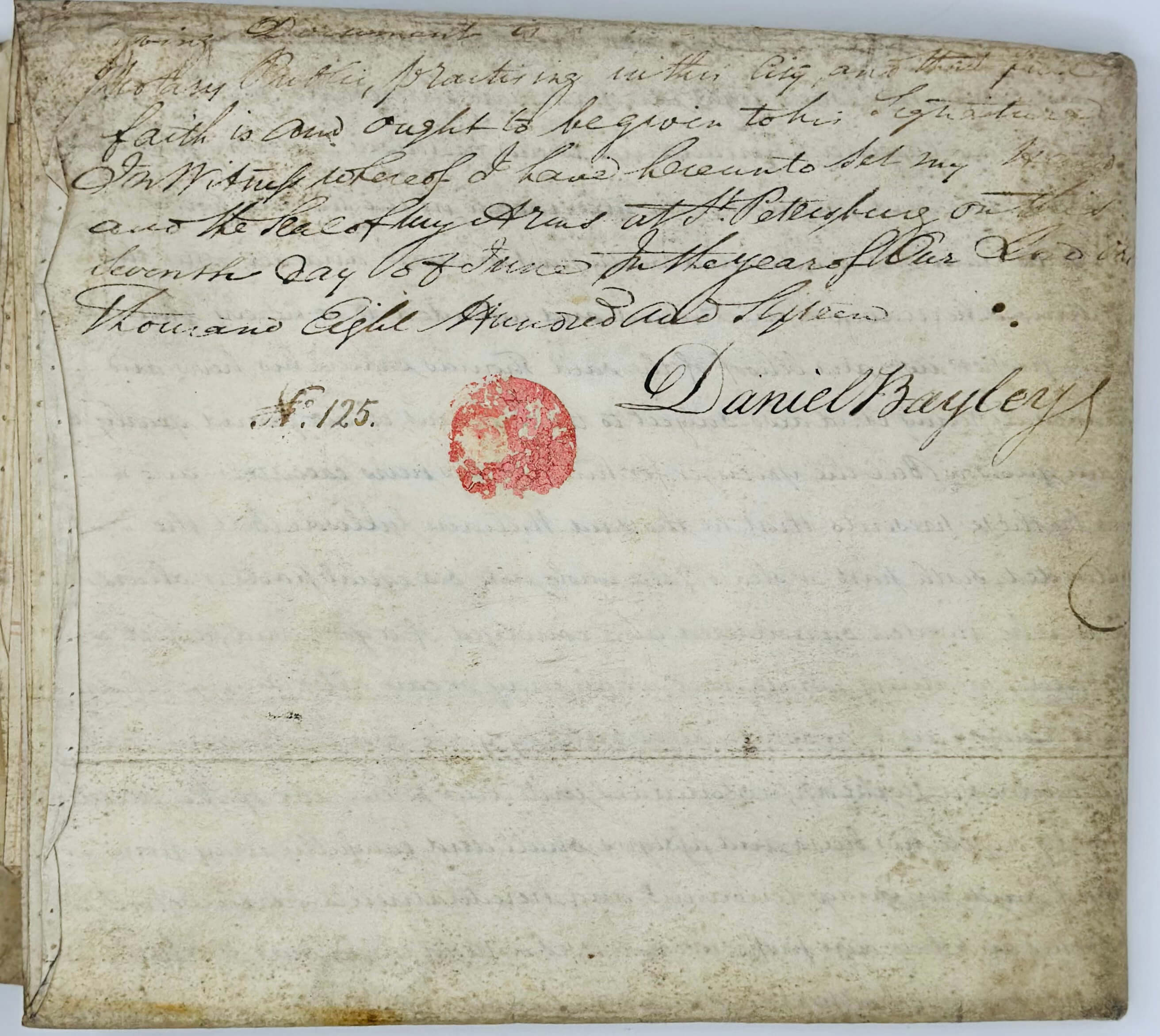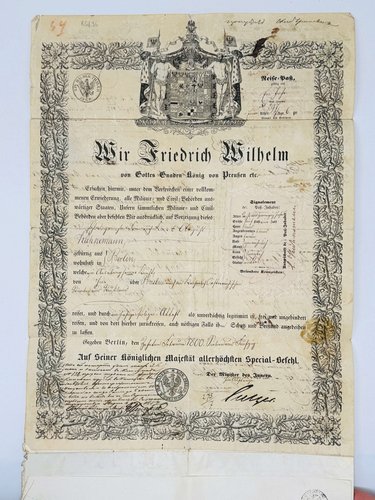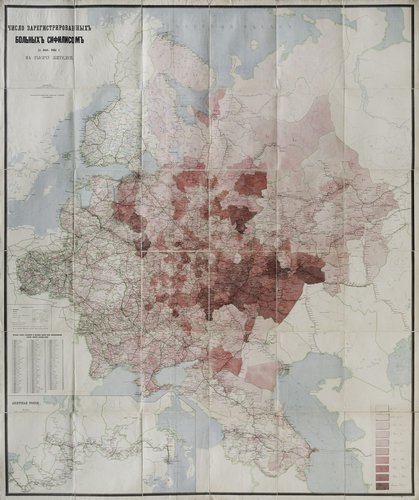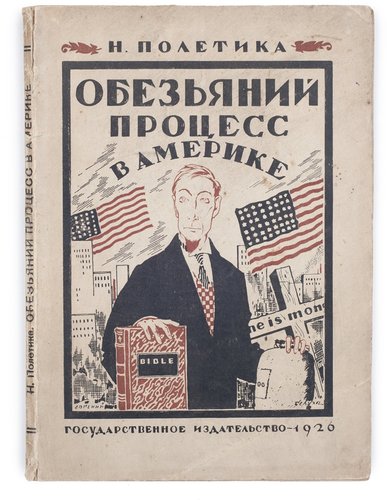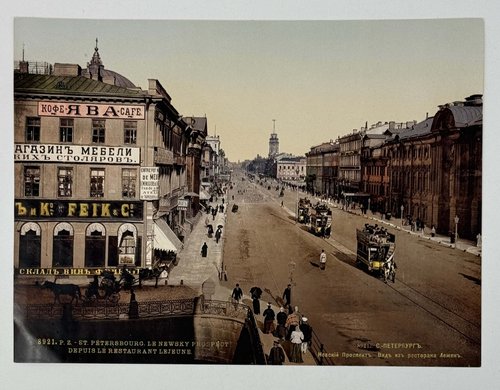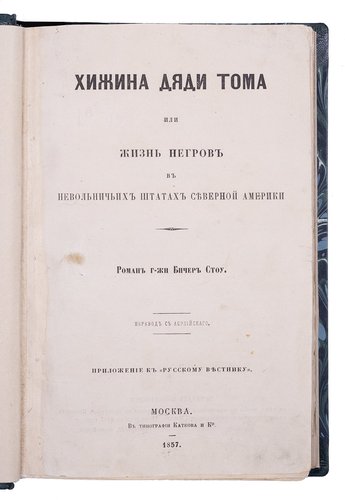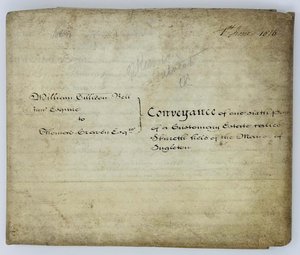
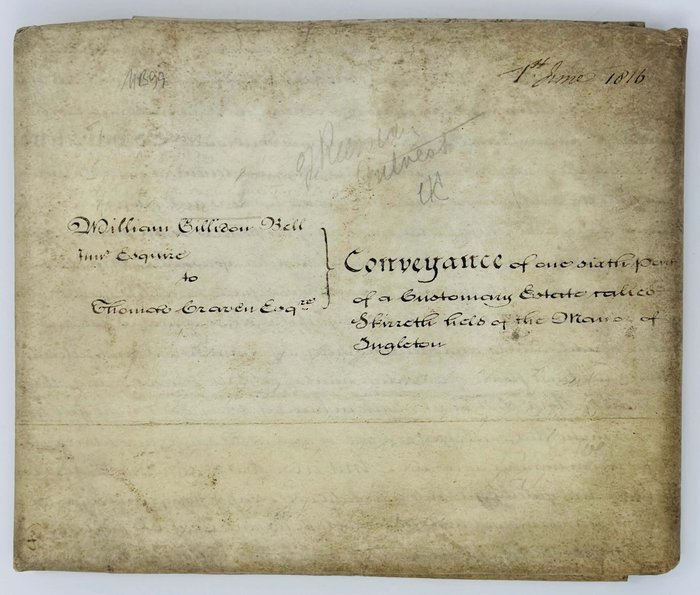
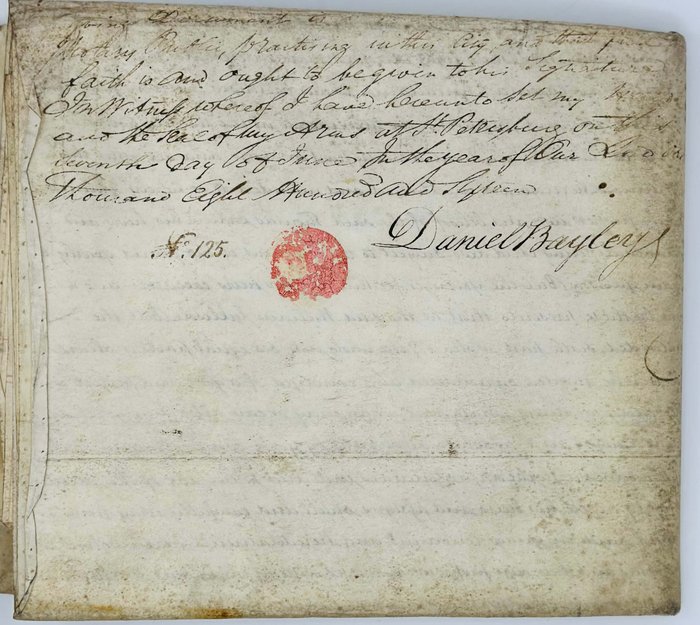
#MB99
1816
Six leaves, all Elephant Folio (ca. 63x77 cm or 20 ¼ x 24 ¾ in). With a notary stamp, a small wax seal and six revenue stamps. Leaves stitched through on the bottom and folded. Brown ink on vellum, filled in on one side. Fold marks, outer leaf soiled and slightly rubbed, otherwise a very good document.
Interesting original real estate document written and certified in Saint Petersburg. Concluded between British merchants in Saint Petersburg, William Gillison Bell (of Melling Hall) and Thomas Graven, the contract was witnessed by local merchants James Liddell and John Ledderdale. William Gillison Bell was later listed as a member of the United Company of Merchants of England (see: A List of the Names of the Members of the United Company of Merchants of England, Trading to the East Indies… London, 1825, p. 10). John Ledderdale (1782-1845) was the father William Lidderdale (1832-1902), Director (1870), Deputy Governor (1887) and the Governor of the Bank of England (1889-1892). The contract was certified, signed and sealed by Saint Petersburg public notary Stephen Sasonoff on June 2, 1816, and further certified by the British Consul General in Russia Sir Daniel Bayley (1766-1834) on June 7, 1816.
“For two centuries after the foundation of St Petersburg in 1703, the British merchant community exercised a remarkable influence over the city's economic relations with the wider world. This community operated as a 'City of London' in miniature, and where the merchants led others - diplomats, travellers, soldiers, sailors, engineers, craftsmen and others - followed. As the new capital grew in splendour, Britons acquired or rented some of the city's finest residences. At the end of Catherine II's reign the city's first grand embankment along the Neva between the Senate (later Decembrist) Square and the New Admiralty Canal came to be known as the English Embankment” (Thompstone, S. On the Banks of the Neva: British Merchants in St Petersburg before the Russian Revolution// History Today, Vol. 53, No. 12).
Sir Daniel Bayley “became a merchant at St, Petersburg, being a partner in the great Russian house of Thorntons and Bayley (firm dissolved 30th April, 1810). He was appointed, 9th October 1812, His Britannic Majesty’s Consul-General at St. Petersburg, and was also agent to the Russia company. He was knighted 20th June 1815, and his services as chargé d’affaires, during the absence of the English ambassador, were also rewarded by the knighthood of the Hanoverian Guelphic Order” (Axon, E. The Family of Bayley of Manchester and Hope. Manchester, 1894, p. 19-20).

